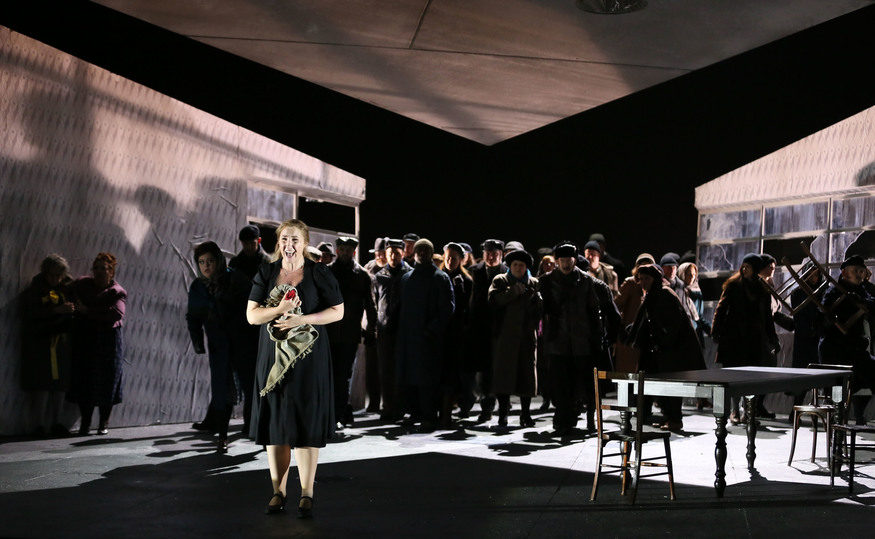Review: Infanticide-Themed Opera Both Draining And Engaging
Last Updated 30 June 2016

Some operas are about ageing men trying to stand in the way of young lovers. Others are about infanticide! Czech composer Leoš Janáček’s Jenůfa definitely falls into the latter category as it explores the most hard hitting of subject matters. It is an intense and emotionally draining affair, but the music, although containing no well known arias, is so powerfully gripping that it is impossible not to be drawn in.
Set in a Moravian village in the ninetenth century, the opera explores the mentality of the small community. The young Jenůfa is pregnant outside of wedlock which is seen as shameful. For this reason, she has kept the fact a secret and hopes to marry the father Števa to smooth everything over. Despite being a ladies’ man, Števa seems to genuinely love her, but so too does his brother Laca, who takes out his frustration at being rejected by slashing Jenůfa’s cheek.
Five months later, Jenůfa has had her baby but her stepmother, the Kostelnička, is so ashamed that she has kept both completely out of sight. She pleads with the fickle Števa to marry Jenůfa but he now finds her withdrawn and has a new lover. The Kostelnička then tries to persuade Laca to do the same and he sounds keen until learning that she has a child.
The Kostelnička thus resolves to kill the child and subsequently tells Jenůfa that it simply died while she lay sleeping with a fever. Laca then agrees to marry Jenůfa, but just before the wedding the townsfolk discover the baby’s body. The Kostelnička finally confesses her crime and walks willingly towards her punishment. She does so to prevent Jenůfa suffering the repercussions of her actions, thus giving she and Laca the chance of leading a happy life together.
In the second revival of David Alden’s 2006 production for English National Opera, the action is placed in a Central European country during the communist era, and the festivities in Act I could equate to the folk revival seen in that area in the 1970s. Each of Charles Edwards’ box-like sets features sharp angles that draw the eye in even as they disconcert. Act I is set in a mill or warehouse with the monochrome colours highlighting the repressive and judgmental community, while the scenes in the Kostelnička’s house speak of piety and poverty. Adam Silverman’s lighting designs frequently throw huge shadows of the figures onto the walls, multiplying them out and thus illustrating one of the opera’s themes that actions have repercussions.
Mark Wigglesworth conducts superbly, while Peter Hoare and Nicky Spence are excellent as Laca and Števa. The highest accolades, however, go to Laura Wilde and Michaela Martens as Jenůfa and the Kostelnička respectively. Wilde has a very sensitive voice that is capable of opening out to express fear and anguish, while conversely Martens makes us feel her presence at every turn, before paring her voice down to reveal the more introspective and fearful side to her character.
Until 8 July (six performances) at the London Coliseum, Saint Martin’s Lane, Charing Cross, WC2N 4ES. For tickets (£12-£125) visit the English National Opera website. Londonist saw this opera on a complimentary ticket.



